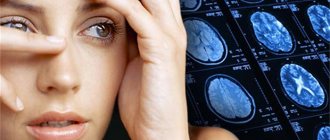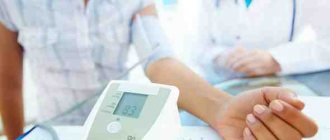Nowadays, you won’t surprise anyone with claustrophobia or aerophobia. People are afraid and at the same time laugh at their fears. However, society tends to screw itself up and create new and new fears. Thus, in recent years, such a strange phobia as the fear of getting cancer or cancerophobia has begun to actively spread. A person suffering from this phobia sees in each of his ailments, even a common runny nose, symptoms of cancer of one or another organ and tirelessly perform various tests, driving himself to the point of nervousness. So what should you do if the same phrase “I’m afraid of getting cancer” is pounding in your head? How to get rid of an obsession and overcome yourself?
Cancerophobia - what is it?
What is cancerophobia? This is the fear of getting cancer. The fear of getting cancer may hide other fears. For example, a phobia may be associated with fear of death, loneliness, helplessness, or disability. Additionally, there may be a fear of loss of external attractiveness.
Carcinophobia (carcinophobia) is a type of hypochondria (a mental disorder in which a person is overly concerned about his health) and nosophobia (a collective name for the fear of disease). Hypochondriacs study scientific medical literature, visit doctors, get tested, and look for symptoms of diseases. If doctors say that the tests are normal, then the hypochondriac goes to other doctors or diagnoses himself and prescribes treatment.
What else is characteristic of the patient’s behavior (cancerophobia, symptoms and signs):
- mood swings and emotional instability;
- inadequate emotional reactions (tearfulness, touchiness, irritability);
- increased anxiety at the slightest discomfort or symptom, for example, colic, headache, nausea;
- decreased cognitive abilities (problems with attention, memory);
- fear of cancer patients (cancer phobe avoids them);
- problems with sleep, loss of appetite, general weakness caused by nervous overstrain (the patient does not understand the cause-and-effect relationships and takes these symptoms for manifestations of cancer, which is why he is even more afraid);
- preoccupation with one’s well-being, constant discussion of illnesses;
- passion for cancer prevention (taking dietary supplements, playing sports, diet, cleansing the body).
If a person discovers some symptom or receives a conclusion about bad tests, sees an ambulance or comes across a film about cancer patients, this can lead to panic and hysteria, psychosis. But the problem is that panic attacks are the cause and consequence of deterioration in well-being. The more anxious the patient is, the more often panic attacks occur. And the more often panic attacks occur, the worse the cancerophobe feels. It turns out to be a vicious circle.
Prevention of lung cancer
If you are a long-time smoker, or quit smoking less than 15 years ago, then after you reach the age of 55, you should add a low-dose computed tomography (CT) to your annual examinations. This is the most effective method for screening lung cancer at the first stage. Fluorography and x-rays cannot replace it, so you don’t have to waste time on these types of diagnostics.
For some types of cancer, effective screening methods do not yet exist. For example, for ovarian, pancreatic, bladder or kidney cancer.
Causes of cancerophobia
There are several reasons for the development of cancerophobia:
- the death of someone close to cancer or observing someone’s illness (a cancer phobe saw someone suffering, losing health and attractiveness);
- the presence of chronic diseases that can develop into cancer (gastritis, ulcers, benign neoplasms);
- suspiciousness and suggestibility (careless words of a doctor, reports from the media can have an impact);
- frequent contacts with cancer patients;
- cases of cancer in the family.
It is important! For a long time, cancer develops asymptomatically, and in later stages it is practically untreatable. The specificity and aggressiveness of the disease frightens carcinophobes.
Reason 2. Predisposition to cancer
Another category of people with severe anxiety are those who have been diagnosed with diseases that create a predisposition to cancer. Such diseases include, for example, polycystic ovary syndrome associated with uterine cancer. As in the case of heredity, the presence of a predisposition is not at all a guarantee of the development of oncology, but only an increased probability. Therefore, the feeling of doom that arises must be fought. To prevent cancer, it is enough to undergo regular diagnostics according to the schedule prescribed for people at risk, and follow the doctor’s recommendations regarding current diseases. To help yourself psychologically, it is useful to learn to calm down using breathing techniques, meditate and block negative thoughts. If this does not relieve anxiety, then you should engage in psychotherapy.
Types of phobias
Speaking about cancerophobia, it is worth considering two of its manifestations: fear in cancer patients or people in remission and fear in healthy people. The latter begin to worry about their health when they feel one of the popular symptoms of the disease - pain. Let's consider these cases in more detail.
Cancerophobia in cancer patients
If cancer is detected at an early stage, in 90% of cases it is treatable. But success depends on the client’s positive attitude and his desire to fight.
How does canceraphobia manifest in cancer patients?
- unwillingness to fight;
- passivity;
- feeling of helplessness;
- demonstration of helplessness and weakness;
- depressive tendencies.
Cancer patients with cancerophobia feel sorry for themselves, complain about their fate and are in a state of extreme stress. Because of this, their health deteriorates even more.
For pain
Pain is a symptom of most diseases, including cancer. But the problem is that the symptom can be psychosomatic, that is, the person actually feels pain, but the diagnosis does not reveal any disorders or pathologies. The difficulty is that pain is the result of fear, suspiciousness and chronic stress.
Oncology belongs to the group of diseases that provide special bonuses.
Systemic oncology guarantees a quick and painful death. There is nothing to operate on. The person dies quite quickly.
Organ oncology, when one organ is affected, makes it possible to experience the whole range of problems from the horror of immersion in the awareness of the disease to the struggle, surviving the operation and victory. It gives you the opportunity to go through the entire path of a hero and become one. It can become both a way to realize oneself and the most significant event in life; it can add value and uniqueness to oneself in one’s own eyes and respect in the eyes of others. Fighting and defeating a disease can be life's most rewarding achievement.
It’s not easy to give up this temptation, especially if there are examples of “heroes” in the family and environment.
An illness involving amputation of an organ can be chosen by an individual as a way of “paying bills”, “punishing oneself for...”. And the organ that is suitable for this is selected, depending on what needs to be paid for and which part of the body can “bear the blame for it.”
How to get rid of cancer phobia
How to get rid of the fear of getting cancer? No matter how strange it may sound, before starting treatment, a carcinophobe needs to undergo a medical examination. You need one full examination in a good clinic, which will exclude the presence of cancer pathology and after which you need to stop visiting doctors. After this, you can correct your mental state.
Self-deliverance
In the early stages, you can cope with the phobia on your own. To do this, you need to realize and admit the problem, and then realize the irrationality of fear.
How to deal with cancerophobia:
- All worries, fears and negative thoughts live exclusively in your head. Realize that you yourself are the source of your suffering.
- Avoid medical literature. Leave the forums and sites where you were looking for information, remove all posters, give the literature to the library or put it in a distant drawer.
- Stop talking about illnesses. Ask your friends to stop your attempts to start a conversation about diseases.
- Find passion, meaning and purpose in life. There must be something in your life that is stronger than fear.
- Learn to transform negative thoughts into positive ones. Use willpower to switch your mind when you catch yourself thinking negative thoughts.
- Stop being afraid of death and living in an imaginary negative future. If you live in fear of death, it means that you are giving up on life. By trying to avoid death and illness, you avoid life.
- Channel your imagination and energy into creative, productive channels.
It is important to understand that cancer at an early stage is highly treatable. In addition, modern medicine is able to alleviate and slow down the course of the disease and improve the quality of life of patients. There is no need to treat cancer as something terrible, treat it like a cold.
It is important! There is no need to get hung up on the idea of getting rid of a phobia. You need to love life and get carried away by self-realization, then gradually the fear will recede by itself.
Help from a psychologist
Psychotherapists and clinical psychologists treat cancerophobia. Psychoanalysis is used to identify the root cause of fear. It is necessary to look into the patient’s subconscious and understand what kind of fear is hidden behind cancerophobia, which has become a psychological trauma. After this, a treatment plan is drawn up individually. A specialist will help you find the cause of your fear of getting cancer and tell you how to get rid of it.
Chronic tension leads to muscle tension, deterioration of oxygen and blood circulation, vasoconstriction, and metabolic disorders. Therefore, in advanced stages of the disease, drug treatment may be necessary. Symptomatic therapy is aimed at restoring normal organ function and reducing anxiety. For panic attacks and psychosis, the use of tranquilizers and antipsychotics is indicated.
Causes of fear of cancer
The phobia of a cancer tumor appears most often after close people of the person suffering from unconscious fear - relatives or friends - get cancer. In this article, we do not consider those heroic people who, after an oncological diagnosis, were able to recover, but are afraid that they will have a relapse and will have to look the disease in the eye again.
But many carcerophobes cannot even name the exact moment when and why they developed this fear. Only penetration into the subconscious can help here: for example, recalling memories by immersing the patient in an unconscious hypnotic state. The trigger can be any book, movie, or even an article on the Internet that impressed the patient and forced him to try the situation on himself.
It is very important to remember that carcerophobia cannot be congenital - no one is born with it, it is acquired ballast that has accumulated on the wrong side of consciousness like psycho-trash and which simply needs to be discarded. In fact, carcerophobia is a subtype of ordinary fear of death, simply enclosed in a deeper and more prominent shell.
First aid for manifestations of phobia
If you notice signs of a phobia or are experiencing panic attacks, you should immediately consult a psychotherapist. He will prescribe treatment.
What to do if a panic attack takes you by surprise (cancerophobia, treatment of a panic attack):
- inhale slowly and deeply, hold your breath for a few seconds, exhale slowly, repeat several times;
- get distracted by something, concentrate on counting, your breathing, passing cars, etc.;
- try to remember something pleasant;
- try to go to a calm and secluded place; if there is a person you know next to you, then turn to him for help (ask him to support you, to take you to another place).
Drug treatment for phobias - myth or reality?
What to do if a person develops cancerophobia? In psychiatry, the treatment of phobias often occurs with the help of so-called “medication”. The following are used as medicines:
- Traditional anxiolytic drugs (benzodiazepines). This type of medication has an anti-anxiety, sedative and hypnotic effect, and inhibits the activity of the central nervous system as a whole. However, long-term use of drugs is addictive, so you have to give them up fairly quickly.
- Beta blockers (anaprilin, etc.). The drugs actively reduce only the physical symptoms of the disease, namely, they reduce heartbeat and trembling of the body and hands. This happens due to the action of adrenaline contained in the medication. But the drug does not affect the psychological state.
- Antidepressants. The drug treats not the symptoms, but the consequences of the disease, such as depression and panic attacks.
Unfortunately, the patient cannot be expected to recover from “drug treatment.” The drugs provide an almost instantaneous but fleeting effect, but they do not fully treat, do not destroy the root of the problem, but only temporarily alleviate the symptoms, avoiding the impact on cognitive and behavioral patterns. After taking medications, fear does not go away and returns to your life with renewed vigor. During the entire course of treatment, you expose your body to a chemical attack, which can cause addiction and various side effects.
What do neglected cases lead to?
Constant tension and fear turn into chronic stress for the body. Due to increased production of adrenaline and other changes caused by stress, the functioning of the body's main systems deteriorates. The gastrointestinal tract and cardiovascular system are primarily affected. There is also a gradual decrease in immunity. All this together can lead to a person actually getting cancer.
Other consequences of a phobia include an unhealthy passion for traditional medicine (in an attempt to improve one’s health, a person can drink a life-threatening solution), nervousness, aggressiveness, and isolation. Often a person is isolated at home, but this does not reassure him, because the exact reasons for the development of cancer have not been identified.
What tests are there?
A blood test for tumor markers was previously advertised as a universal test for cancer, but its effectiveness has been refuted by scientists. The level of tumor marker proteins in the human body increases for a number of reasons - both due to the development of cancer and during inflammation and injury. Therefore, screening using tumor markers often gives false results.
Genetic tests, for example for mutations in the BRCA 1 and BRCA 2 genes, are prescribed only in selected cases, depending on the patient's genetic background. They should not be done without a doctor's recommendation.
Having dealt with your fears and recommendations for prevention, you can purchase special insurance for final peace of mind.
Source












